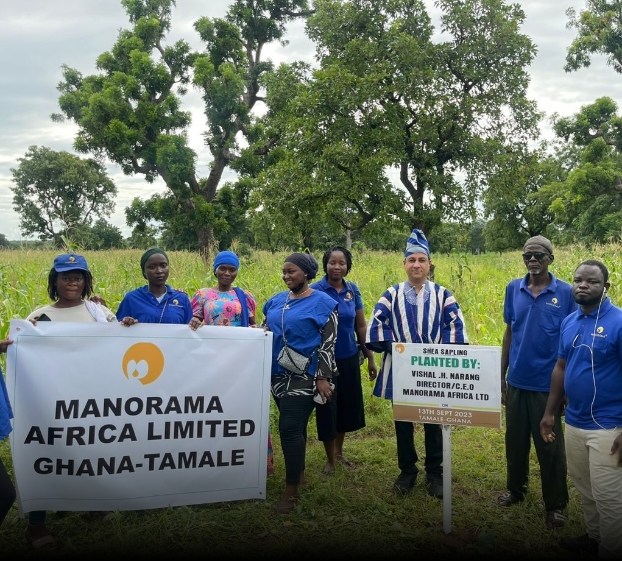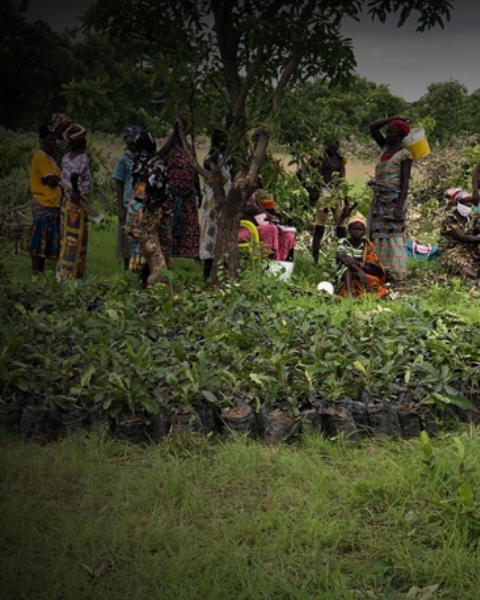Shea trees thrive primarily in West African countries like Mali, Nigeria, Ghana, Burkina Faso, and Ivory Coast, with the best-quality Shea nuts coming from Ivory Coast, Ghana, and Burkina Faso. Annual production ranges from 600,000 to 700,000 metric tons, with trading starting in June and prices varying with demand. Manorama sources Shea nuts from women farmers in Ghana through various suppliers. Seven West African nations produce about 600,000 tons of Shea nuts, exporting a significant portion as raw nuts and converting the rest into roughly 120,000 tons of crude Shea butter. Ghanaian kernels are prized for their superior quality, with lower free fatty acid levels, higher oil content, and reduced contamination.
Framework of Sustainability

Forest

Raw material

Transportation/Shipping
Transportation/
Shipping


Sale

Milling

Packaging

Blending

Refining
Sustainability Programs

Environment Management

Health & Education

Socio Economic Development
Global Shea Alliance
The GSA is a non-profit organization association with 500 members from 35 countries including women’s groups, suppliers, brands and retailers, non-profits, producer national associations, and affiliates members. Through public-private partnerships, the GSA promotes industry sustainability, quality practices and standards, and demand for shea in food and cosmetics. Manorama is an active member for the Sustainability Working Group (SWG) of the GSA. The SWG is committed to promote sustainable practices in the shea industry focusing on women’s empowerment, decent working conditions, development of local communities and the protection of ecosystems.

